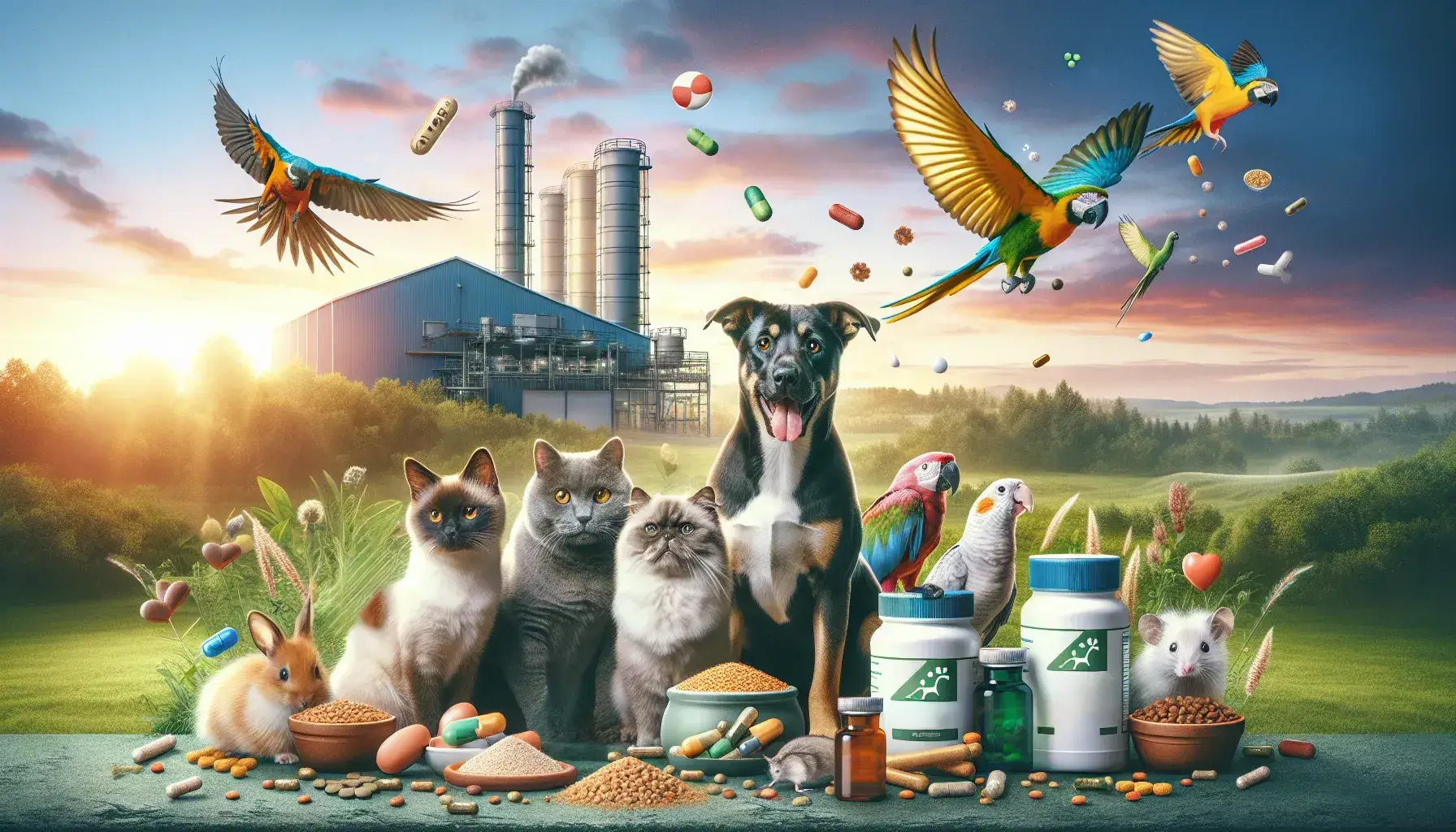The Science of Pet Nutrition: Research-Based Guidelines for Optimal Health

Understanding the Nutritional Needs of Different Pets
Pets are an integral part of our families, and ensuring their well-being is paramount. A key aspect of pet care that significantly impacts their overall health and longevity is nutrition. By understanding the science of pet nutrition and implementing research-based guidelines, pet owners can make informed decisions that positively influence their pets’ lives.
Cats, dogs, rabbits, birds, and other pets have diverse nutritional requirements based on their species, age, size, and activity level. For instance, while dogs are primarily carnivorous, a balanced diet for cats should include higher protein and fat content. Understanding these specific needs is crucial for tailoring their diet to promote optimal health.
Impact of Diet on Pet Health and Longevity
A well-rounded diet directly correlates with a pet's overall health and longevity. A nutrient-rich diet supports proper growth, enhances immune function, and aids in managing weight, thereby reducing the risk of obesity-related health issues. Furthermore, a well-nourished pet is more likely to live a longer, healthier life, bringing joy and companionship for years to come.
Exploring Nutritional Trends and Innovations in Pet Food
The pet food industry continually evolves to incorporate nutritional advancements. From raw and grain-free diets to functional ingredients such as probiotics, there are various trends and innovations reshaping pet nutrition. Keeping abreast of these developments allows pet owners to make educated choices regarding their pets' dietary requirements.
Integrating Supplements for Enhanced Pet Health
Supplements can play a pivotal role in fortifying a pet's diet, addressing specific health concerns, and bridging nutritional gaps. From omega-3 fatty acids for joint health to multivitamins for overall well-being, the strategic integration of supplements can bolster a pet's health when used judiciously and under veterinary guidance.
Reading pet food labels is a fundamental skill that empowers pet owners to make informed decisions. Understanding the ingredients, nutritional adequacy statement, and guaranteed analysis enables pet owners to discern the quality and suitability of a particular pet food, ensuring it aligns with their pet's specific dietary needs.
How to Read Pet Food Labels for Informed Choices
Macronutrients, including proteins, fats, and carbohydrates, form the foundation of a pet's diet, providing the necessary energy and building blocks for bodily functions. Concurrently, micronutrients such as vitamins and minerals facilitate various physiological processes, highlighting their vital role in maintaining overall pet health.
The Role of Macronutrients and Micronutrients in Pet Health
Just like humans, pets can develop allergies or have dietary restrictions. Identifying and addressing these sensitivities is essential in formulating a well-balanced diet. Whether it involves opting for hypoallergenic options or conducting elimination diets, navigating food-related allergies and restrictions is critical in ensuring a pet's comfort and well-being.
Navigating Allergies and Dietary Restrictions in Pets
Crafting a balanced and nourishing diet for pets involves meticulous planning and a deep understanding of their individual needs. This includes offering a variety of high-quality foods, introducing new items gradually, and seeking professional guidance when formulating homemade meals. Furthermore, maintaining portion control and monitoring food intake is essential in promoting a healthy diet for pets.
In conclusion, the science of pet nutrition is a multifaceted domain that warrants attention and dedication. By assimilating the research-based guidelines outlined above, pet owners can effectively cater to their pets' nutritional requirements, ultimately fostering their well-being and vitality.
Strategies for Implementing a Balanced and Nourishing Pet Diet
Remember, a well-fed pet is a happy pet, and their joyous wagging tails or contented purrs serve as heartwarming testaments to the profound impact of optimal nutrition on their lives.
Frequently Asked Questions
Different pets have unique nutritional requirements based on their species, age, size, and activity level. For example, dogs require a primarily carnivorous diet, while cats need higher protein and fat content. Understanding these specific needs is essential for tailoring diets that promote optimal health and well-being in pets.
A well-rounded diet is crucial for a pet's overall health and longevity. Nutrient-rich food supports proper growth, enhances immune function, and helps manage weight. By reducing the risk of obesity-related health issues, a balanced diet contributes to a longer, healthier life for pets, ensuring they remain joyful companions.
Reading pet food labels is vital for making informed dietary choices. Pet owners should understand the ingredients listed, the nutritional adequacy statement, and the guaranteed analysis. This knowledge helps determine the quality and suitability of the food for their pets' specific dietary needs, ensuring optimal nutrition.






